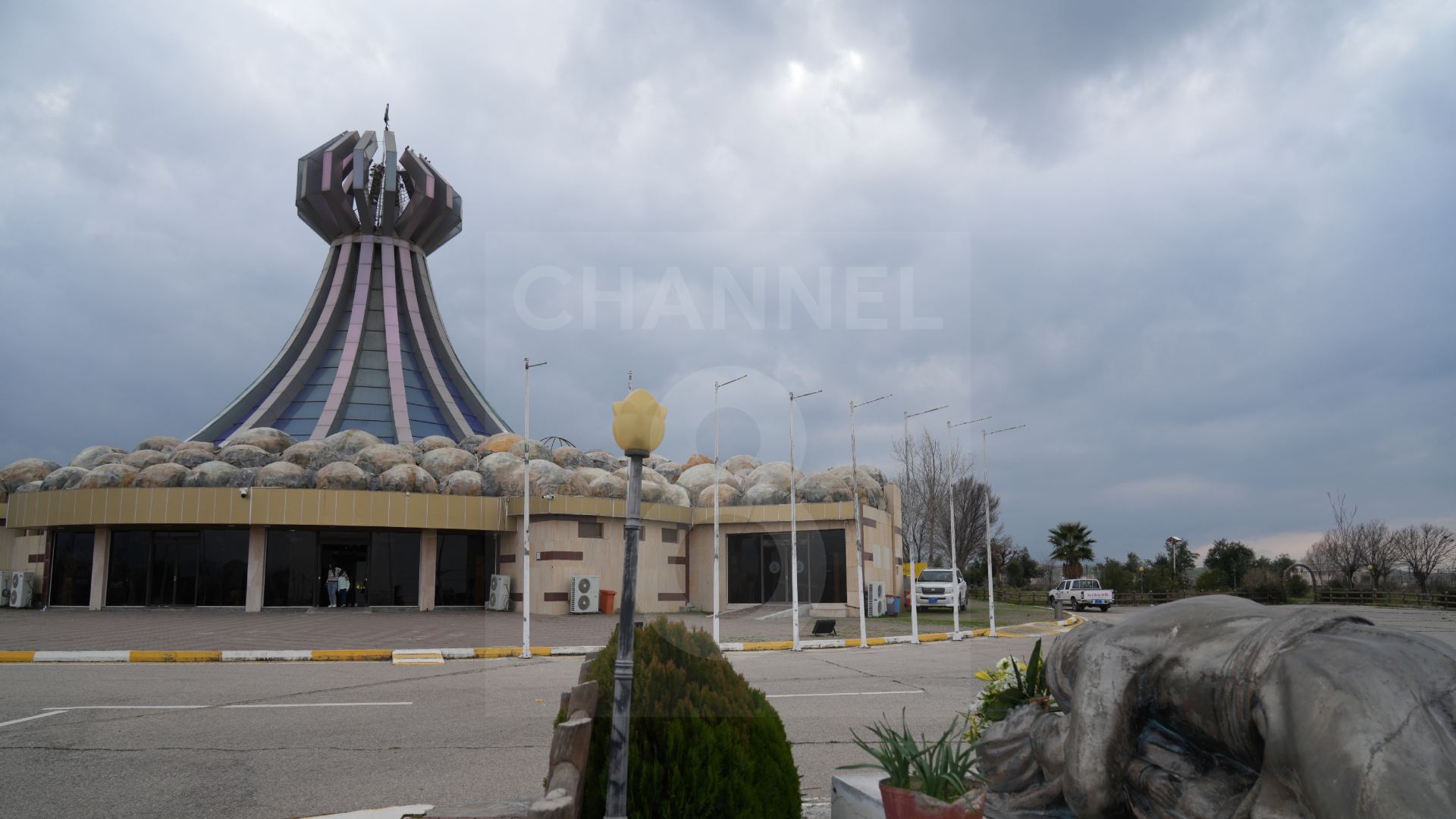Today marks the 36th anniversary of the devastating chemical attack on Halabja province in the Kurdistan region. The attack, orchestrated by Saddam Hussein, not only aimed to silence his critics but also served as a cruel testing ground for his arsenal of chemical and biological weapons.
During the years 1987 and 1988, Hussein unleashed a series of ruthless chemical attacks on 40 Kurdish villages, with the most horrific assault unfolding in Halabja in March 1988. This marked the first instance in modern history where chemical weapons were so mercilessly wielded against innocent civilians, claiming the lives of thousands.
The brutality of these attacks is harrowing to recount. The toxic gases used were a deadly combination of mustard gas and nerve agents, strategically designed to inflict maximum harm. Mustard gas targeted the nose, throat, and lungs, while nerve agents like Sarin, Tabun, and VX attacked the eyes and respiratory system.
Survivors recall the insidious tactics employed, with one gas bearing a sweet aroma to lure victims into inhaling deeply, and another acting as a paralyzing agent, causing instant and irreversible collapse. A heavier-than-air gas ensured that no shelter was truly safe, claiming lives within minutes and leaving devastation in its wake.
The aftermath of the attack was catastrophic. Over 5,000 civilians, including women, children, and the elderly, perished within hours, while more than 10,000 others suffered life-altering injuries such as blindness. The long-term effects extended beyond immediate casualties, as epidemics and birth injuries continued to claim lives in the ensuing years, forcing thousands to flee their homes.
The shadow of this atrocity continues to loom large, with the impact of chemical weapons not limited to the initial devastation but persisting in the contamination of food, water supplies, soil, and wildlife.
Halabja tragedy will remain in our hearts: Iraqi PM Sudani

On the anniversary of the Halabja chemical attack, Iraqi Prime Minister Mohammed Shia Sudani said on Saturday, ‘We painfully remember this crime and its victims.'”
Sudani said in a post on his account on X platform that the attack serves as a reminder for “our generations of the brutality of the fallen regime and its atrocities against Kurdish people and the rest of the Iraqi people.”
“This tragedy remains in our hearts and encourages us to do more to strengthen our democratic system,” he said.
Sudani added that the government persists in its endeavors to “deliver justice to our people who have endured injustice and to enact laws that uphold their rights.”
Halabja governor urges Iraqi government to recognize Halabja as province

Governor of Halabja Azad Tofiq called on the Iraqi government to provide Halabja with the same level of care as it does for Najaf and the marshes in southern Iraq
Tofiq conveyed the Kurdistan Regional Government’s (KRG) message on the 36th anniversary of the Halabja chemical attack, urging the federal government to address the needs of the governorate’s residents.
He additionally urged the federal government to work towards recognizing Halabja as a province by the time they commemorate the 37th anniversary of the city’s chemical attack next year.
Halabja chemical attack is one of many crimes against Kurdistan: President Barzani

Kurdistan Region President Nechirvan Barzani said that the chemical attack on Halabja represents one in a series of brutal crimes, including genocide, the Anfal campaign, and mass burials, perpetrated against the peaceful and humanitarian people of Kurdistan.
“I pay tribute to the souls of more than 5,000 martyrs of Halabja,” Barzani said in a message, extending his regards to the families of the victims and to all those still enduring the scars and illnesses from the attack
“If there was any justice, the genocide of Halabja would be enough to recognize all the rights of the Kurdish people,” he added.
Barzani emphasized that the people of Halabja, as well as all victims of genocide, Anfal, and the crimes perpetrated by the previous regime in the Kurdistan Region, should be compensated and afforded the highest quality of services across all sectors.
“To achieve this, the Iraqi government must fulfill all its obligations and duties, ensuring justice for the victims. Efforts must be made at the international level to prevent the recurrence of such crimes and genocides anywhere.”
US Consulate in Erbil commemorates victims of Halabja chemical attack

On the anniversary of the Halabja chemical attack, the US Consulate General in Erbil expressed solidarity on Saturday, honoring the memory of those who were killed or injured.
“We will continue working together to prevent such horrible atrocities from ever happening again and to promote the principles of peace, understanding, and diversity,” the consulate said in a post on Facebook.
“On this solemn anniversary, a day of mourning for all Iraqis especially in the Iraqi Kurdistan Region, the U.S. Consulate General in Erbil joins the rest of the world in remembering those who were killed and injured.”
Kurdistan needs unity, not division and separation: PUK President Talabani

On the anniversary of the Halabja chemical attack, Patriotic Union of Kurdistan (PUK) President Bafel Jalal Talabani urged for differences to be set aside in pursuit of common interests, emphasizing that “we, as Kurds, share the same destiny.”
Talabani said in his message that “Today, and every day, we honor and remember the martyrs of the Halabja genocide, as well as the resilience of their courageous families.”
He said that while commemorating “this great crime, there are numerous complaints, inadequate services, and discriminatory practices in service provision, and what is offered to Halabja and its proud people remains confined to slogans and promises without action.”
“The tragedy that struck the city should have served as a great historical lesson for us Kurds and we should have collectively, in a national and responsible spirit, worked towards restoring hope and constructing a brighter, more stable future,” he added.
“Kurdistan needs unity and solidarity, not division and separation. We must set aside our differences in favor of common interests and always remember that we, as Kurds, share the same destiny.”
KRG PM Barzani honors Halabja chemical attack victims

On the 36th anniversary of Halabja Chemical Attack, Kurdistan Regional Government (KRG) Prime Minister Masrour Barzani said on Saturday that the main objective behind this crime, along with other crimes committed by successive Iraqi regimes, was the genocide of the Kurdish people and the erasure of their identity.
Barzani said in a message that these crimes should “encourage us to defend our national rights and protect the entity of the Kurdistan Region.”
“We honor the memory of the innocent martyrs of the beloved city of Kurdistan, who fell victim to the brutality of the former Iraqi regime and the indifference of the international community,” he said.
He added that it is profoundly disappointing that following the downfall of the previous regime, successive Iraqi administrations have failed to compensate the families of the martyrs of Halabja and the victims of Anfal and other crimes, which is a legitimate and constitutional right of the Kurdish people.
“They are not even willing to finalize the necessary procedures for Halabja to be recognized as a governorate.”
Iranian FM spox criticizes West for double standards on Halabja attack

Iranian Foreign Ministry Spokesman Nasser Kanaani recently criticized the West for its double standard policies on human rights, pointing to the tragic chemical attack on the Iraqi city of Halabja in 1988.
In a social media post commemorating the 36th anniversary of the attack by former Iraqi dictator Saddam Hussein, Kanaani highlighted the devastating impact it had on the residents of Halabja.
Describing the attack as a “brutal” and “inhumane” act, Kanaani emphasized the rapid loss of life that occurred in Halabja due to the inhalation of poisonous gas.
He also called attention to the complicity of some European countries in providing support to the Iraqi regime to produce chemical weapons, which were subsequently used during the war with Iran.
Kanaani condemned the hypocritical behavior of certain Western nations and supporters of Saddam Hussein in turning a blind eye to the use of chemical weapons during the conflict.
Referring to reports by the United Nations documenting more than 350 instances of chemical weapon use by Saddam’s regime in the war with Iran, Kanaani stressed the severity of the violations committed.
The chemical attack on Halabja on March 16, 1988, resulted in the deaths of thousands of people, with many suffering long-term health consequences due to exposure to mustard gas and sarin poisoning.
The incident stands as a grim reminder of the atrocities committed during that period, underscoring the need for accountability and justice in addressing such grave human rights violations.






